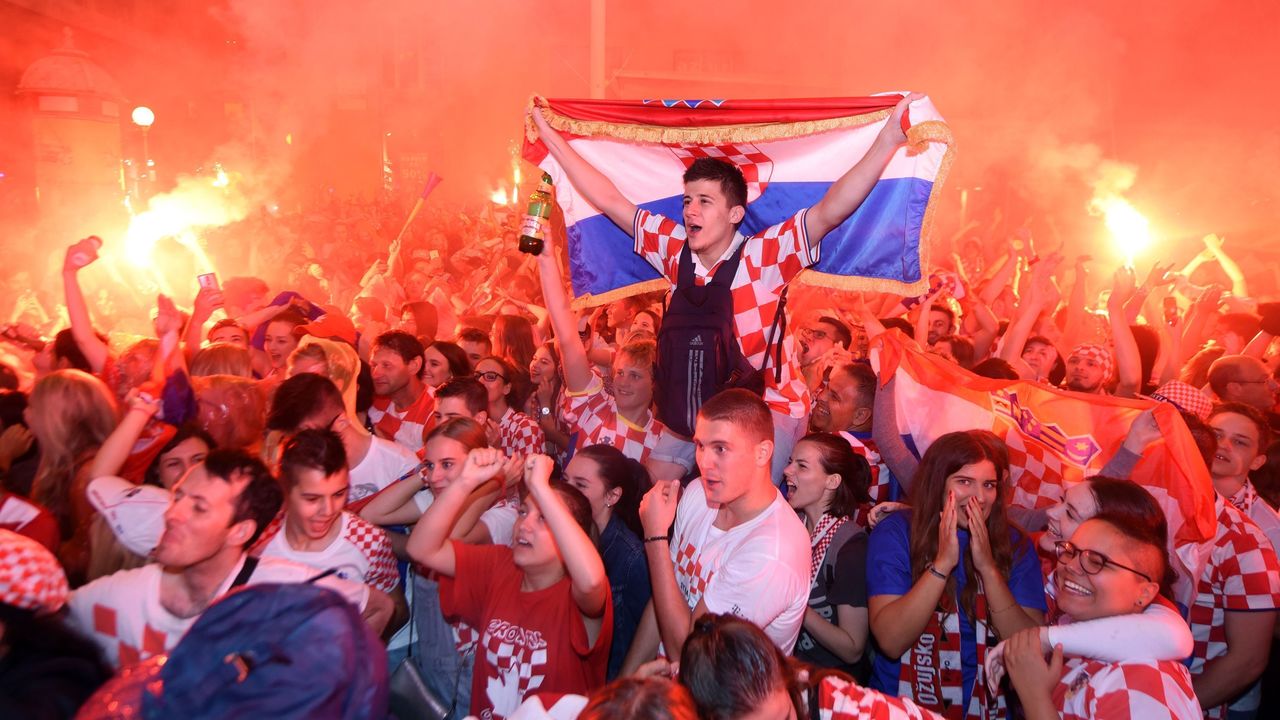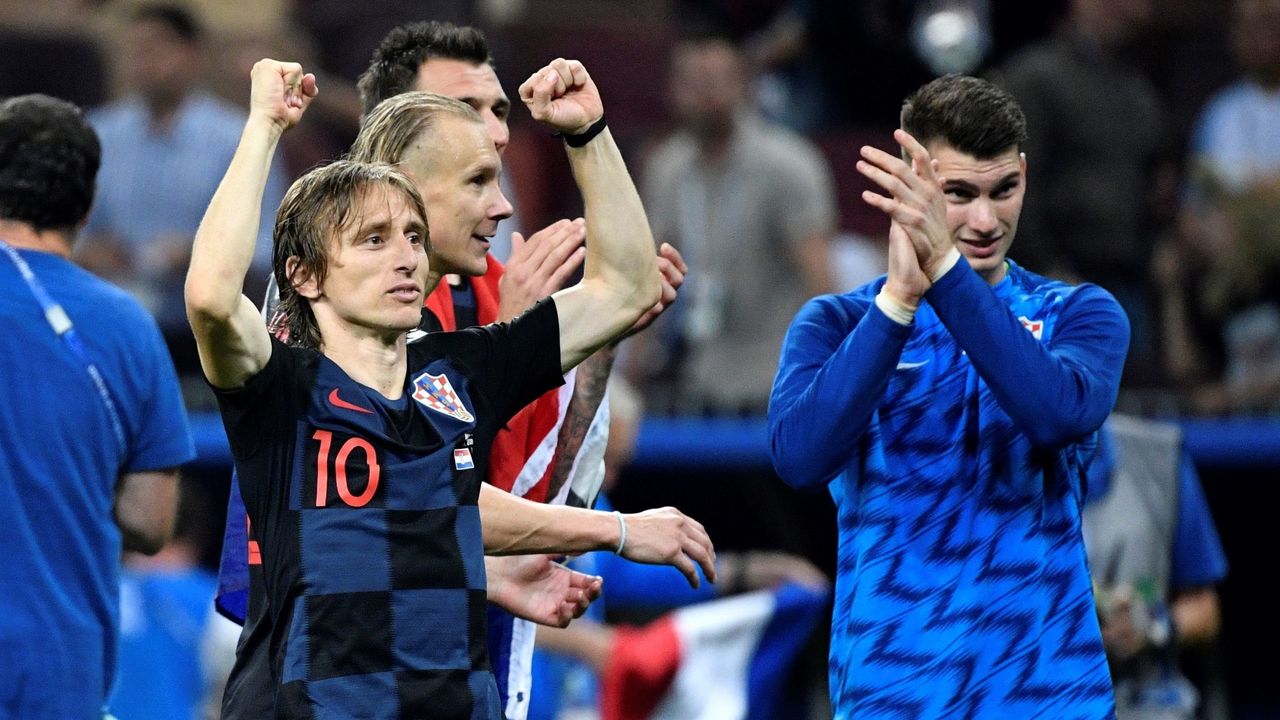Croatia's unexpected World Cup run boils down to remarkable resilience
Back in October, few in Croatia would've envisioned their country in a World Cup final.
The national team had just slumped to an embarrassing 1-1 draw with Finland, then ranked 66th in the FIFA World Rankings, that dropped Croatia to second in its group and put its trip to Russia in jeopardy.
Then, just 48 hours before Croatia's final qualifier, the country's football association made the decision to fire Ante Cacic as manager. Luka Modric called the situation "catastrophic." A routine qualifying campaign had suddenly become imperiled.
All of this came against the backdrop of an ongoing corruption scandal that implicated Modric, defender Dejan Lovren, and striker Mario Mandzukic. Modric was suspected of, and later charged with, perjury, while public sentiment began to turn against some of the team's biggest stars. Modric's own trial is expected to begin after the World Cup.
Related: England out after Mandzukic's extra-time strike sends Croatia to World Cup final
Croatia had no time to prepare like, say, England did. Head coach Zlatko Dalic - who emerged from relative anonymity to replace Cacic on the bench - didn't have the time to do the kind of detailed scouting and research that his counterpart on Wednesday did. Gareth Southgate had already travelled to Russia and decided on a three-man defence by the time Dalic took over. The 51-year-old even waited until after Croatia qualified to officially sign his contract.
And yet everything fell into place. His team dispatched Ukraine in the last round of qualifying, brushed aside Greece in a two-legged play-off, embarrassed Argentina in the group stage, and huffed and puffed through three matches of 120 minutes and longer to reach a first-ever World Cup final.
It may not have gone according to any master plan, but it happened.

As Croatia topped its group, teams with set philosophies, legitimate projects, and legendary players fell by the wayside. Dalic's group struggled and survived. It played typical tournament football, showing resilience when other club's backup plans fell short, and opportunism when others missed chances.
It's not so much the quality of the players that's guided Croatia to this point in history. More established coaches than Dalic tried and failed to make the most of the country's golden generation. Croatia has achieved results by persevering when it would've been easier to quit.
"What our players did today, the strength they've shown, the stamina, the energy levels. I wanted to substitute but no one wanted to be subbed, everybody kept saying, "I'm ready, I can run on,'" Dalic said after Croatia defeated England in yet another frame of extra time, according to FIFA correspondent Vjekoslav Paun.
"Some players played with minor injuries with which they would not have played some other games. Two players played with half a leg, but it didn't show!"
Modric has led the way. He's covered more distance than any other player at the World Cup, showcasing not only his range of passing but his grittiness in the tackle and a relentless drive. He had the courage to take a penalty mere minutes after missing one against Denmark, and stepped up again in the quarter-final versus Russia.
But it's not just Modric. Every player has committed themselves. Mandzukic, Ante Rebic, and Ivan Perisic have all defended from the front and busted lungs for their teammates. The desperation is evident: No team at the World Cup has made more clearances, tackles, and saves than Croatia.

There were obstacles off the pitch as well. Croatia sent home Nikola Kalinic after he refused to come on as a substitute, and had to tread diplomatic lines earlier this week when assistant coach Ognjen Vukojevic and defender Domagoj Vida were caught singing a politically-charged Ukrainian chant. Vukojevic ultimately lost his job before the semi-final.
Croatia has done everything through adaptation. Any other plans - how to stop Lionel Messi, how to deal with Russia's high-press, how to defend against Harry Kane - were drawn up on the go.
Now here they are, with legacies on the line and a chance to do what the legends of 1998 couldn't accomplish. October seems so long ago.
(Photos courtesy: Getty Images)
HEADLINES
- Neymar has minor knee surgery, still hopes to play in World Cup
- Messi vs. Yamal: Argentina, Spain to contest Finalissima in March
- World Cup winner's record $50M jackpot far below CWC windfall
- Netflix to launch FIFA World Cup video game
- Small number of World Cup tickets set at $60 after global fan backlash